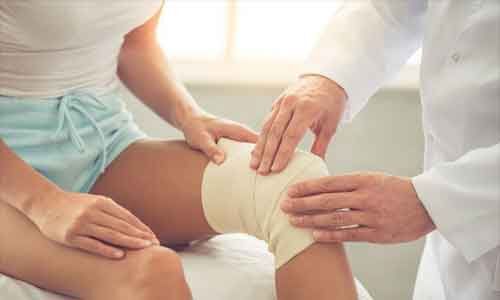- Home
- Medical news & Guidelines
- Anesthesiology
- Cardiology and CTVS
- Critical Care
- Dentistry
- Dermatology
- Diabetes and Endocrinology
- ENT
- Gastroenterology
- Medicine
- Nephrology
- Neurology
- Obstretics-Gynaecology
- Oncology
- Ophthalmology
- Orthopaedics
- Pediatrics-Neonatology
- Psychiatry
- Pulmonology
- Radiology
- Surgery
- Urology
- Laboratory Medicine
- Diet
- Nursing
- Paramedical
- Physiotherapy
- Health news
- Fact Check
- Bone Health Fact Check
- Brain Health Fact Check
- Cancer Related Fact Check
- Child Care Fact Check
- Dental and oral health fact check
- Diabetes and metabolic health fact check
- Diet and Nutrition Fact Check
- Eye and ENT Care Fact Check
- Fitness fact check
- Gut health fact check
- Heart health fact check
- Kidney health fact check
- Medical education fact check
- Men's health fact check
- Respiratory fact check
- Skin and hair care fact check
- Vaccine and Immunization fact check
- Women's health fact check
- AYUSH
- State News
- Andaman and Nicobar Islands
- Andhra Pradesh
- Arunachal Pradesh
- Assam
- Bihar
- Chandigarh
- Chattisgarh
- Dadra and Nagar Haveli
- Daman and Diu
- Delhi
- Goa
- Gujarat
- Haryana
- Himachal Pradesh
- Jammu & Kashmir
- Jharkhand
- Karnataka
- Kerala
- Ladakh
- Lakshadweep
- Madhya Pradesh
- Maharashtra
- Manipur
- Meghalaya
- Mizoram
- Nagaland
- Odisha
- Puducherry
- Punjab
- Rajasthan
- Sikkim
- Tamil Nadu
- Telangana
- Tripura
- Uttar Pradesh
- Uttrakhand
- West Bengal
- Medical Education
- Industry
Dexamethasone may help reduce post total knee arthroplasty morphine requirement, study finds

Denmark: In a new study conducted by Kasper Smidt Gasbjerg and team, it was found that two doses of dexamethasone help in reducing morphine consumption during 48 hours after total knee arthroplasty and reduced postoperative pain. The findings of this study were published in the British Medical Journal.
The procedure of total knee arthroplasty is very prevalent. More than a million treatments are performed annually around the world, and this number is predicted to rise dramatically as the world's population ages. Moderate to severe postoperative discomfort is common following the operation. As a result, the goal of this study was to look at the effects of one and two doses of intravenous dexamethasone in patients who had total knee arthroplasty.
This was a randomized, blinded, placebo-controlled trial with a 90-day follow-up period. This study took place in five Danish hospitals from September 2018 to March 2020. researchers received and analyzed data from 485 adult individuals who had total knee arthroplasty. Participants were randomly assigned to one of three groups using a computer-generated randomized sequence stratified by site: DX1 (dexamethasone (24 mg)+placebo); DX2 (dexamethasone (24 mg)+dexamethasone (24 mg)); or placebo (placebo + placebo). Preoperatively and after 24 hours, the intervention was provided. The investigators, participants, and outcome assessors were all blinded. Paracetamol, ibuprofen, and local infiltration analgesia were given to all of the subjects.
The key findings are as follow:
1. A total of 485 people were randomly assigned to one of three groups: 161 to DX1, 162 to DX2, and 162 to placebo.
2. The primary outcome analysis includes data from 472 individuals (97.3%). DX1 37.9 mg; DX2 35.0 mg; and placebo 43.0 mg were the median (interquartile range) morphine consumptions from 0 to 48 hours.
3. Between DX1 and DX2, the median differences were 2.7 mg, 7.8 mg between DX1 and placebo; and 10.7 mg, between DX2 and placebo.
4. One dosage of dexamethasone was given 24 hours after surgery, and two doses were given 48 hours after surgery.
In conclusion, after total knee arthroplasty, two doses of dexamethasone as an adjuvant to multimodal pain treatment with paracetamol, ibuprofen, and local infiltration analgesia reduced morphine consumption and pain.
Reference:
Gasbjerg K S, Hägi-Pedersen D, Lunn T H, Laursen C C, Holmqvist M, Vinstrup L /span> et al. Effect of dexamethasone as an analgesic adjuvant to multimodal pain treatment after total knee arthroplasty: randomised clinical trial BMJ 2022; 376 :e067325 doi:10.1136/bmj-2021-067325
Medical Dialogues consists of a team of passionate medical/scientific writers, led by doctors and healthcare researchers. Our team efforts to bring you updated and timely news about the important happenings of the medical and healthcare sector. Our editorial team can be reached at editorial@medicaldialogues.in.
Dr Kamal Kant Kohli-MBBS, DTCD- a chest specialist with more than 30 years of practice and a flair for writing clinical articles, Dr Kamal Kant Kohli joined Medical Dialogues as a Chief Editor of Medical News. Besides writing articles, as an editor, he proofreads and verifies all the medical content published on Medical Dialogues including those coming from journals, studies,medical conferences,guidelines etc. Email: drkohli@medicaldialogues.in. Contact no. 011-43720751


